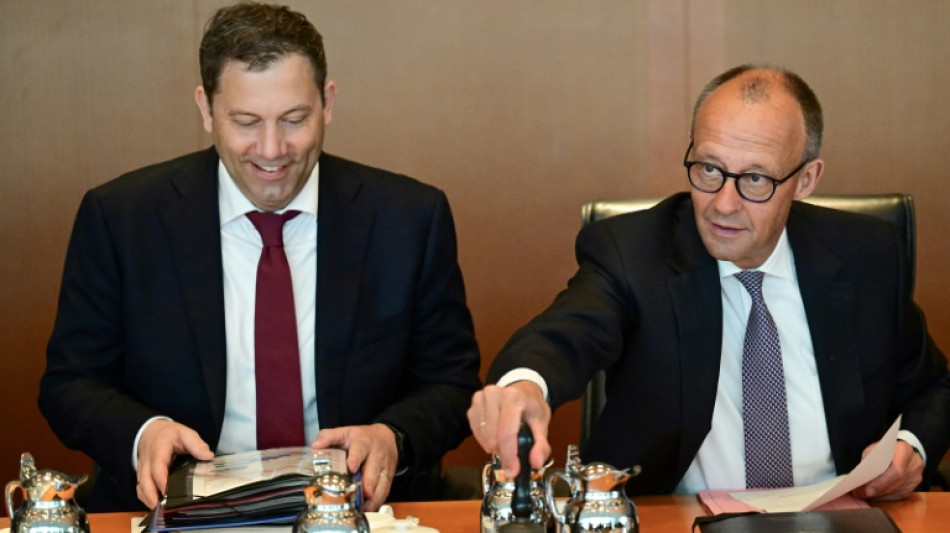
RYCEF
0.1300


Germany's government pledged Tuesday to make massive new investments by taking on record debt as it presented its budget plans with the aim of reviving the economy and building up the military.
The plans approved by Chancellor Friedrich Merz's cabinet included the 2025 draft budget -- delayed after the previous government collapsed last year -- as well as the outline for public finances until 2029.
The ambitious programme for coming years, to be voted on by parliament in September, marks a break from years of financial austerity pursued by previous German governments and highlights the sweeping fiscal shift set in motion by Merz.
The conservative leader, who took power in May, is betting on taking on vast debts to pull the eurozone's biggest economy out of a long downturn, upgrade creaking infrastructure and improve public services.
"Our primary goal is to boost the economy, to secure jobs in our country and to create new ones," said Finance Minister Lars Klingbeil, presenting the budget plans.
"Our country has been ruined by austerity in many areas -- and the investment backlog is huge."
The budget forecasts agreed on by Merz's CDU/CSU bloc and their coalition partners, the centre-left SPD, outline record spending on the military, roads, railways and hospitals -- as well as unprecedented new borrowing.
The figures are eye-watering: the finance ministry plans to take on some 847 billion euros ($984 billion) in debt over the entire legislative period, divided between the regular budget and "special funds" set up for purposes such as boosting the military and infrastructure.
Spending on the armed forces alone is expected to reach 162 billion euros in 2029, more than triple Germany's defence budget before the war in Ukraine.
Germany is set to reach the new NATO target of spending 3.5 percent of gross domestic product on core military needs in 2029, six years earlier than previously planned.
Under the target, set to be announced at this week's NATO summit, allies will also agree to spend 1.5 percent of GDP on broader security-related items like cybersecurity -- a compromise deal meant to placate US President Donald Trump.
Merz has vowed to build up Europe's "strongest conventional army" in response to the Russian threat amid the Ukraine war as well as concerns about US security commitments to Europe under Trump.
T.Wu--ThChM